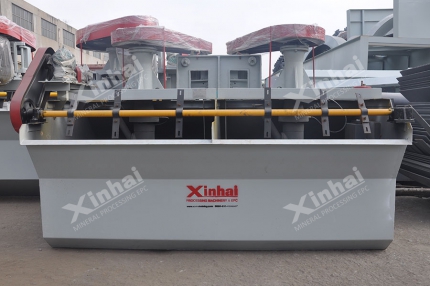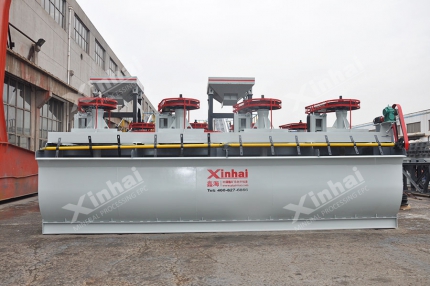The beneficiation process of phosphate rock is an important part of mineral processing, and its selection directly affects the utilization efficiency and economic benefits of phosphate ore resources. With the advancement of technology and the development of technology, flotation technology and heavy medium cyclone separation technology have become the two mainstream technologies in phosphate ore separation. This article will discuss the specific application of flotation technology such as direct flotation, direct-reverse flotation, and double reverse flotation, and their applicable ore types. At the same time, it will compare the advantages and disadvantages of phosphate rock flotation technology and heavy medium cyclone separation technology, and finally provide scientific process selection suggestions for the efficient utilization of phosphate rock resources.
Use the table of contents below to navigate through the guide:
01Flotation process of phosphate rock
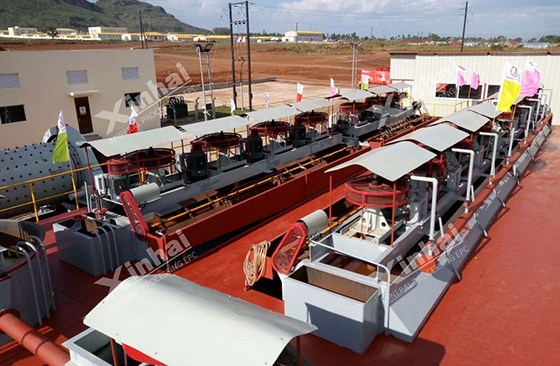
The flotation process of phosphate rock is an important technology in the field of mineral processing, which is used to separate high-purity phosphate minerals from complex ores. According to the different types and properties of ores, flotation processes can be divided into the following main types:
Positive flotation process: This process is suitable for processing siliceous phosphate ore. By using reagents such as Na2SiO3 to inhibit silicate minerals and using anionic collectors to positively float phosphate minerals, a higher separation efficiency can be achieved. When processing siliceous phosphate ore, the positive flotation process can effectively separate phosphate minerals and obtain good mineral processing effects.
Direct-reverse flotation process: This process is particularly suitable for processing sedimentary calcium phosphate rock. First, Na2CO3, Na2SiO3 and other reagents are added to inhibit the flotation of silicates, and then anionic collectors are used to float phosphates and carbonate minerals containing calcium and magnesium. Next, the pH value of the slurry is adjusted to 5.5-6.0 by adding acidic reagents such as H2SO4 or H3PO4 to inhibit the flotation of phosphates, and finally anionic collectors are used to reversely float carbonate minerals. This double flotation process can effectively improve the grade and recovery rate of phosphate concentrate, and is particularly suitable for processing carbonate-rich ores.
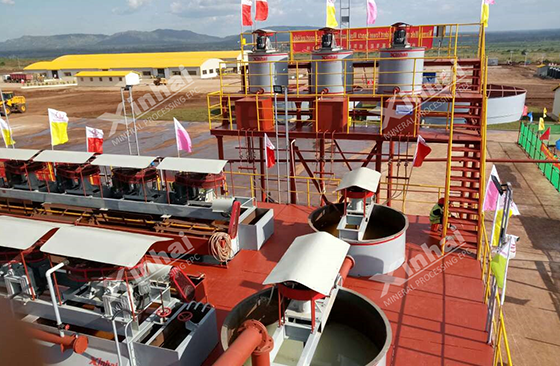
Double reverse flotation process: Double reverse flotation process is designed for processing difficult-to-select collophanite. First, the flotation of phosphate minerals is suppressed by adding H2SO4 or H3PO4, and then carbonate minerals such as dolomite are reverse floated using anionic collectors. Next, the slurry is desludged and finally silicate minerals are reverse floated using cationic collectors. This process can effectively separate impurity minerals from phosphate ore and is suitable for fine processing of complex ores to ensure high-grade phosphate concentrates.
These flotation processes provide flexible processing solutions based on the different characteristics of phosphate ores to ensure the best beneficiation results under different ore conditions.
02Phosphate rock heavy medium cyclone separation process
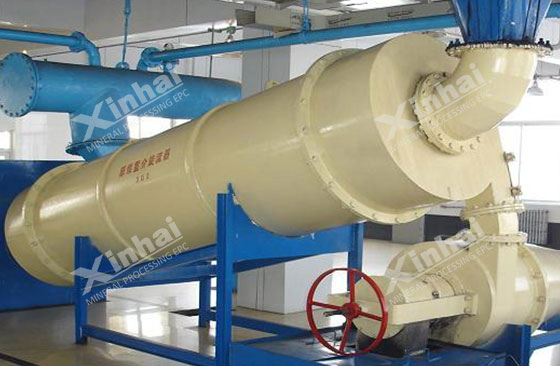
The heavy media cyclone separation process is particularly suitable for processing silicocalcine phosphate rock because the silicocalcium phosphate rock has physical properties that make it easier to dissociate. When the ore type is mainly silicate-calcium phosphate rock, by crushing the ore to a particle size of -15mm, the degree of monomer dissociation of the phosphorus rock strips can be significantly improved, making the dissociation rate reach more than 90%. On this basis, the use of heavy media beneficiation technology can effectively separate the target minerals, obtain good beneficiation effects, and further improve the grade and recovery rate of phosphate rock.
03Comparison of phosphate rock flotation and heavy medium beneficiation process
Phosphate rock flotation process and heavy medium beneficiation process have their own advantages and disadvantages, as follows:
(1) The advantages of phosphate ore flotation process are high concentrate grade, low recovery rate and high beneficiation cost. The disadvantages are complex process system, high cost of crushing, grinding and product dehydration, and large pollution of natural environment by industrial wastewater flotation reagents.
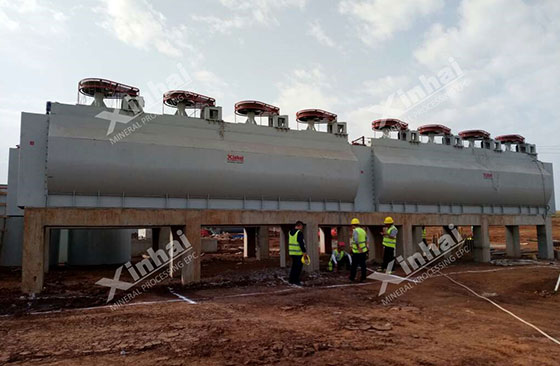
(2) The advantages of heavy medium beneficiation process are simple process system, low cost of crushing and product dehydration, and small pollution of natural environment by industrial wastewater flotation reagents. The disadvantages are low concentrate grade, low recovery rate and low beneficiation cost.
In summary, the phosphate rock flotation process and heavy medium beneficiation process that can be applied to actual industrial production have their own advantages and disadvantages. In order to make the phosphate ore scientific, economical, and efficient separation, it is recommended to use the heavy medium beneficiation-flotation process, that is, to use the heavy medium beneficiation process to roughly select the phosphate rock suitable for gravity separation, and use flotation to select the phosphate ore. The heavy medium beneficiation-flotation process is to use heavy medium beneficiation to roughly select part of the tailings from the phosphate ore at a coarse particle size, which can reduce the cost of tailings treatment for flotation operations and thus reduce the beneficiation cost.


 marketing@ytxinhai.com
marketing@ytxinhai.com  0086 13810327080
0086 13810327080 




























































































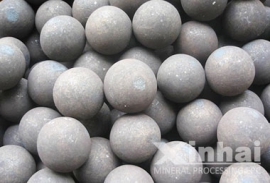
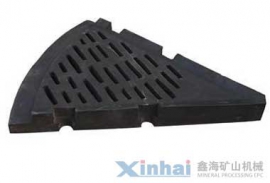








 CHAT
CHAT MESSAGE
MESSAGE



